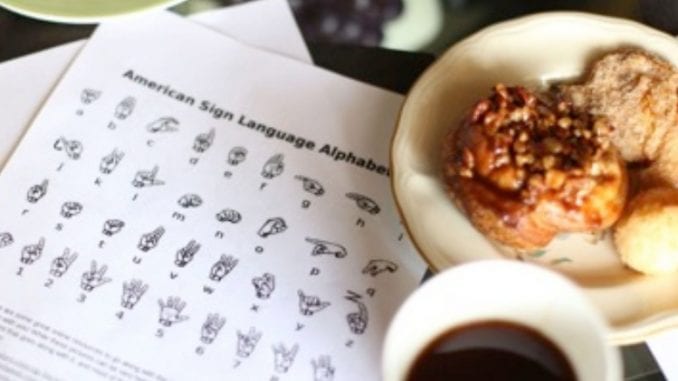
American Sign Language is taught and explored by members of the Charlotte Coffee Collective to promote better hospitality and inclusion toward guests.
BY DILLON WILLIAMS
SPECIAL TO BARISTA MAGAZINE
Photos by Aaron Tran
A coffee shop is a sacred place to many people. It is warm and open—an escape from all the troubles of home and the workplace. Baristas serve up delicious beverages with a smile and allow customers to feel welcome. This, however, is not the case for every guest that opens our doors. For example, customers that are hard of hearing are often met with confusion and given a piece of paper to write down their order. So the Charlotte Coffee Collective, a group of coffee professionals from all over the city, met at Amélie’s French Bakery for a couple of hours to learn how they could better serve the Deaf community.
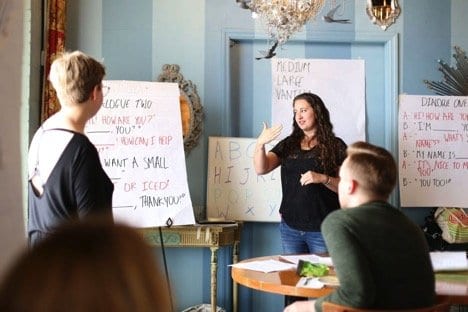
Amélie’s French Bakery director of operations Sarah Britton and barista Claire Lucas led the two-hour instructional class, hosting 15 members of the Charlotte community. The group, which included coffee professionals, cafe owners, baristas, and artists, laughed together as they became better acquainted during a series of icebreakers to begin the event. Members warmed up by saying their favorite animals (the narwhal, shark, and dog really broke the ice) while Sarah and Claire translated each animal in ASL (American Sign Language).
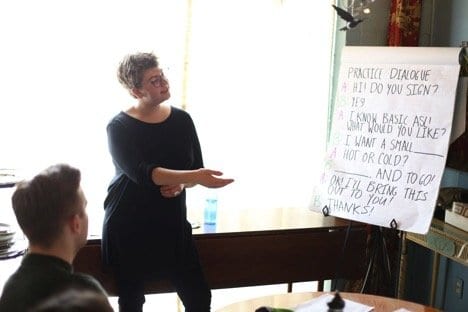
“By learning basic ASL and opening that door, we are opening the Charlotte coffee community to be more inclusive towards everyone because coffee is something to be shared,” Claire told the group. From basic conversational language to coffee vocabulary including key service and hospitality phrases, the instructors covered a lot in the two short hours. Members of the community practiced their signing while following along to the written dialogue provided by the instructors. From ‘iced or hot,’ ‘I’ll bring that out to you,’ and ‘It’s nice to meet you,’ rudimentary sentences were practiced by the group—including, ‘I know basic ASL.’
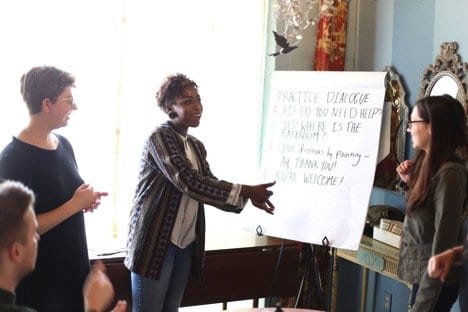
Attendees were introduced to strategies to overcome obstacles that all of the service industry experiences. Ian, founder of Cuplux Coffee Drive-Thru, described communicating with customers thusly: “People are thrilled, whether it be using ASL or speaking another language.” Ian also offered his thoughts on servicing the Deaf community in his drive-thru-only coffee shop, opening soon in Charlotte: “It is going to be difficult, [but] this event has given me a great chance to actually think about it. It’s an interesting obstacle, but we can definitely figure it out.”
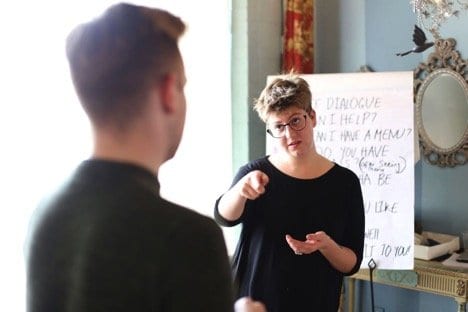
Learning something completely foreign creates openness and acceptance for guests as well as for coffee professionals. In a sometimes homogeneous barista community, embracing diversity can be difficult to do. Coléa Henderson, bar manager at Amélie’s, sees these classes as a way for the community to be open to more people who may be more marginalized. “While the Charlotte barista community is not very inclusive towards many of the intersections that I belong to,”Coléa says, “I definitely see huge strides being made to being more inclusive, whether it be by taking a sign language class or talking about how to make safe spaces for marginalized people.”
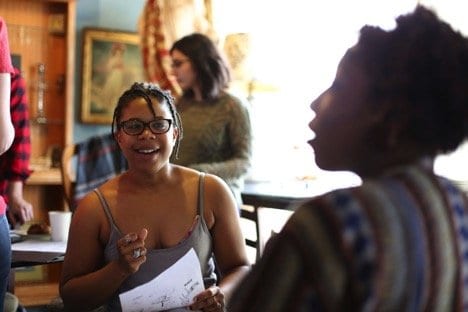
ASL comes with an entirely new set of grammar, etiquette, and dialects, which can at first seem challenging and daunting for anyone, including members of the coffee community. But by learning the basics, service and coffee professionals are able to extend a hand to all people. While helping translate and instruct the class, Sarah of Amélie’s said, “Learning sign is a way to engage with someone who may be just as passionate about coffee or service as we are—so why not try and learn a little bit more so we can have that engagement?”
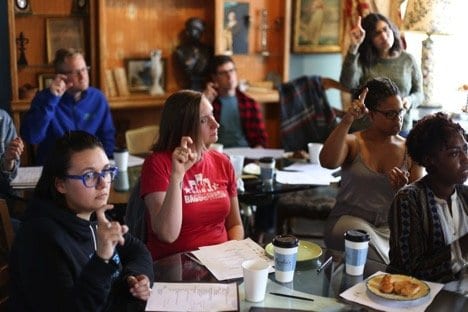
With so many more coffee shops coming to Charlotte, events like this remind us to put our guests first and embrace them with compassion and integrity. By meeting and learning together, the Charlotte coffee community not only strengthens the bonds within the industry, but within the city as a whole.
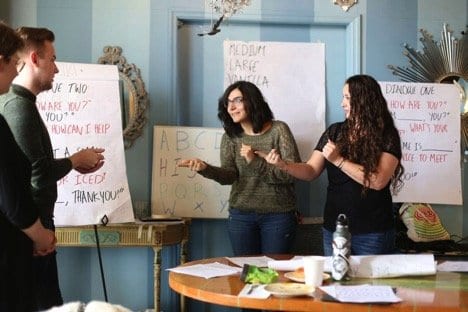
If you would like to host an ASL class in your city, check out these helpful guides. It is highly suggested that such a class is presented by an ASL interpreter.
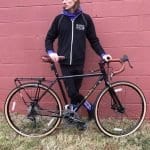 ABOUT THE AUTHOR
ABOUT THE AUTHOR
Dillon Williams is a service professional in Charlotte, N.C. He has a blog at homecomingcoffeetour.com in which he explores coffee communities and people throughout Europe while touring on his bike.

